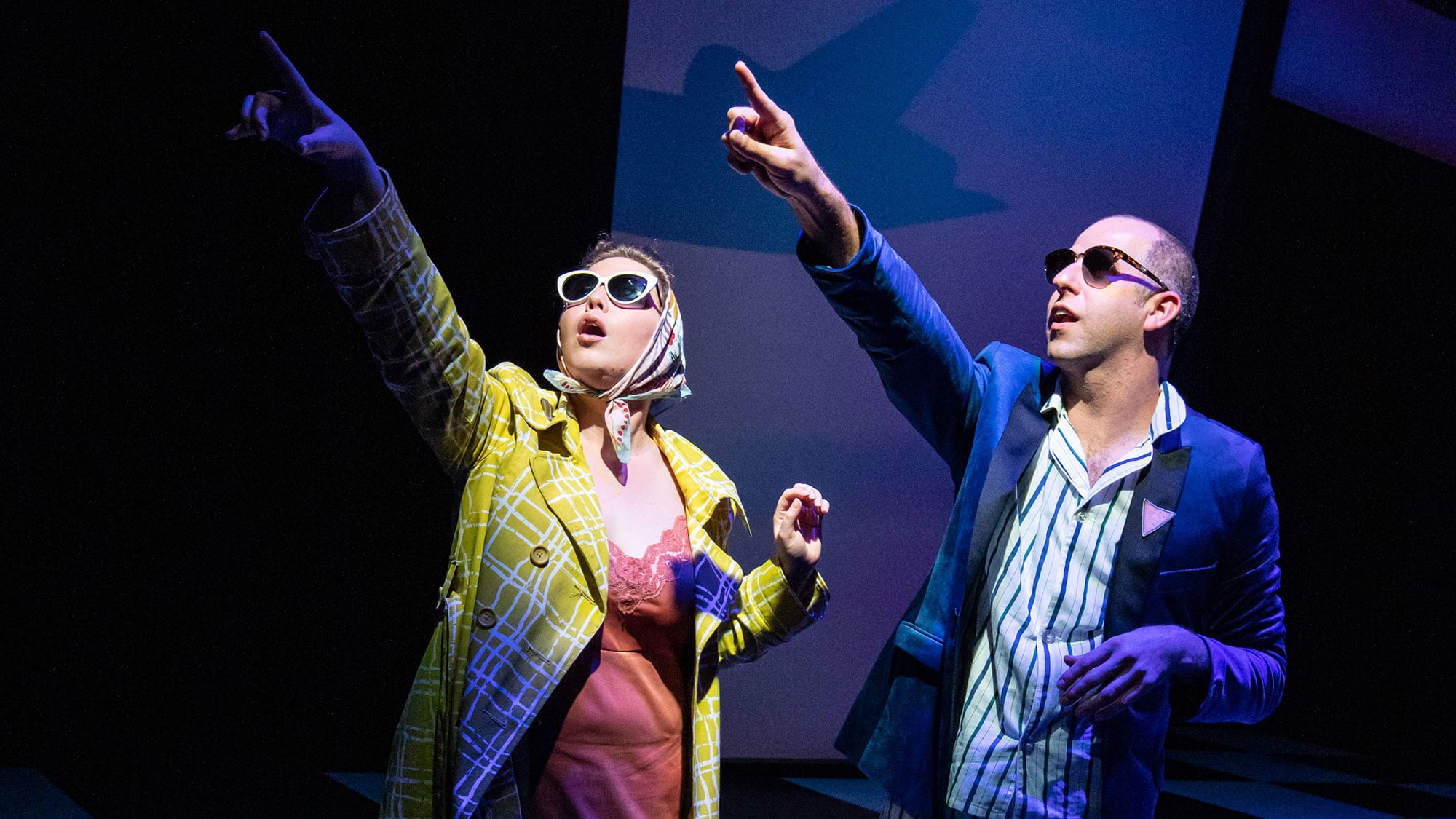If you go see Profile Theatre's production of Paula Vogel's The Baltimore Waltz—and you should—you will spend parts of it wondering what the hell is happening. You will not mind. The play is too delightful and fascinating to cause any real frustration. And by the time you figure out what's going on, you will be shocked, but not really. This is a play with a plot twist that isn't a gimmick—it's a hidden tragedy that you may have seen all along.
The Baltimore Waltz is the first production of Profile's season devoted to works by Vogel, Lynn Nottage and Branden Jacobs-Jenkins. A storyteller with the heart of a parent and the guts of a provocateur, Vogel knows how to blend compassion and outrageousness. Her writing is a reminder that sometimes, the route to emotional truths can take you deliriously over the top.
That's where Anna (Jen Rowe), the play's passionate and befuddled heroine, ends up. In the first act, we learn she is an elementary school teacher who has contracted a probably fatal (and totally fictional) ailment called Acquired Toilet Disease, also known as ATD. Her only hope is Dr. Todesrocheln, a Vienna urologist operating on the fringiest fringes of medical science. Pouncing on a potentially once-in-a-lifetime opportunity, Anna and her brother Carl (Dan Kitrosser) use her appointment with the dubious physician as an excuse to embark on a European odyssey.
The journey is based on Vogel's chosen comedic principle: Don't understate when you can exaggerate. It's not enough for Anna to simply savor French cuisine—she weeps operatically over a meal, bemoaning the days she wasted eating bologna—just as it isn't enough for an airport security guard (Joshua J. Weinstein, the so-called Third Man, who plays every other character) to be only a bit of a perv. In line with Vogel's penchant for excess, he's a crazed creep who spreads Carl's legs, crawls between them and then sends him on his way with an emphatic spanking.
Profile has simultaneously captured and tempered the play's throw-everything-in-the-blender approach. It can't have been easy to make sense of a story inspired by buddy comedies, sex comedies and even film noir, but director Josh Hecht and projection designer Alan Cline elevate the story's zaniness with elegant visuals. Using projections of everything from the Eiffel Tower to scenery speeding by outside train windows, Cline smoothly whisks us from the United States to France, Germany and Austria, making the play a seductive and immersive travelogue.
Another side of The Baltimore Waltz begins to emerge when Carl reveals a slideshow of images from his past European adventures. His pictures look suspiciously American (Mickey Mouse is featured), but that's not the only thing that's off—both Rowe and Kitrosser's performances grow more melancholy and realistic during the scene. It's as if the rest of the play has been an over-the-top dream and we're finally getting a glimpse of reality.
As the story continues, that glimpse grows, often agonizingly. If you don't want to know the ending, do not Google Paula Vogel—the play's climactic revelation alludes to what must have been one of the most excruciating chapters of her life. The Baltimore Waltz may be spunky, but its goofball verve exists alongside waves of nostalgia, loss and grief that cascade over you in the final scenes.
In the face of anguish, The Baltimore Waltz's absurdity doesn't come off as a dodge—it feels like a tribute. Vogel could have honored a lost loved one with a somber elegy, but she decided to tell a tale that is both brutally honest and beautiful in its silliness. Don't go down easy, she seems to say. Live—gloriously and ridiculously if you can—and don't settle for a waltz when you can choreograph your own strange and sublime moves.
SEE IT: The Baltimore Waltz is at Imago Theatre, 17 SE 8th Ave., profiletheatre.org. 7:30 pm Thursday-Saturday, 2 pm Sunday, through Nov. 3. $20-$40.
